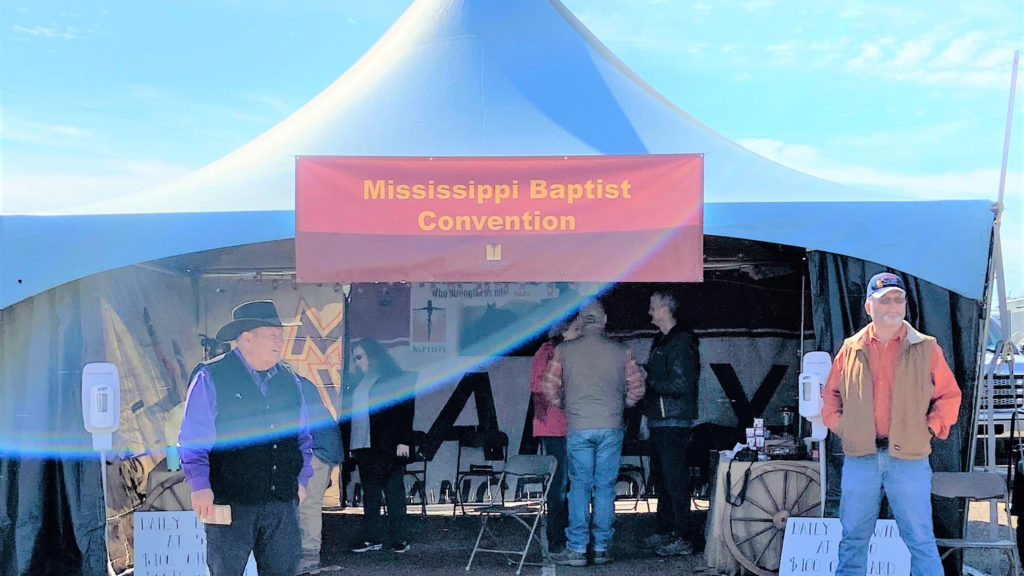By Grace Thornton
The Alabama Baptist
So your church is between pastors right now. What’s the best plan for your church to fill the pulpit while you search for a new pastor?
Mike Jackson, director of the office of LeaderCare and church health at the Alabama Baptist State Board of Missions (SBOM), said there are three approaches to consider and decide which one best fits your church’s needs.
1. Supply pastors
One way you can approach your church’s interim time is to use supply pastors — basically a different guest speaker every week or for several weeks at a time.
This idea could be beneficial in some ways, Jackson said.
“For one, it gives a church an opportunity to hear different types of preaching that maybe they haven’t been exposed to,” he said.
It can also be a cost-saver for a church. But if your interim time is lengthy the congregation can become weary of the constant change, Jackson said. “Folks like to have some consistency and like to know who’s going to be in the pulpit.”
2. Traditional interim pastors
An approach with a bit more consistency is the traditional interim — pulling in one pastor to fill the pulpit during the entire pastor search.
“Every church can negotiate with that person what they want beyond the preaching aspect,” Jackson said. “Some are available to do pastoral care and administration and offer leadership and can work with staff and meet with committees. Others are basically a permanent pulpit supply.”
But there is a third option, he said, one that offers a different approach to interim pastoral work — the transitional pastor.
3. Transitional pastor
In some ways the transitional pastor is the same as the traditional interim — he offers a permanent preaching supply and he can offer guidance to the church’s staff and committees.
But a transitional pastor takes it a step further, Jackson said. “He has been trained in a process to lead a church on a journey.”
That journey is an eight-step process laid out in a model created by LifeWay Christian Resources and intended to help a church determine God’s mission for their church.
‘Helpful posture’
“They guide the church to look at past and present and look forward to the future,” Jackson said. “This process puts them in a helpful posture so when a permanent pastor is called, the church has dealt with some issues, gone through some healing if necessary and gone through a visioning process of projecting where God would want them to be.”
During this time the transitional pastor’s sermons are also intentional, matching the stage of the process the church is walking through along the way.
The benefit of this option is that when the new pastor arrives, the church is ready to move forward without a lot of delay, Jackson said. This approach turns an interim time from a period of waiting to a time of “productive advancement.”
George Yates, church health strategist with the SBOM, said that can be a healthy thing for a church.
“With a transitional pastor you can continue growing the church in Great Commission work,” he said. “This type of pastor wants to have you not only ready for the new pastor, but wants him to have to hit the ground running just to catch up with you. It’s an effort to keep the church moving forward or get it moving forward and reverse declining trends.”
It’s something to consider as you’re planning for a transition and thinking through which of the three options would be best for your church, Jackson said. Some churches shy away from committing to a transitional pastor because of the time commitment — it’s a nine-to-12-month process and many want to find a pastor more quickly than that.
“But we’re finding that across the board in all situations, it’s taking most churches a year to 18 months to find a pastor anyway,” Jackson said.
‘Pray intently’
These are all factors to consider as you’re praying about how to handle an interim time, he said. “I would encourage churches to pray intently about where God will have them. Some churches could be well serviced with one of the first two options — the supply pastor or the traditional interim pastor. But I also think any church could be a prime candidate for a transitional pastor.”
_____________________________________________________________________________
Transitional Pastor Training will be held April 8–10
The Alabama Baptist State Board of Missions (SBOM) will hold a three-day training for pastors and associational missionaries who are interested in working with churches during a transitional period to provide wise counsel and experienced leadership through the stages of transition between the end of one pastor’s ministry and the beginning of another’s.
The conference will be held April 8–10 at the SBOM office in Prattville.
Guest speakers will be Henry Webb, consultant for the LifeWay transitional pastor ministry, and Marcus Merritt, lead state missionary for church minister relations at the Georgia Baptist Mission Board.
Register for the conference at http://bit.ly/registerfortpt. (TAB)






Share with others: